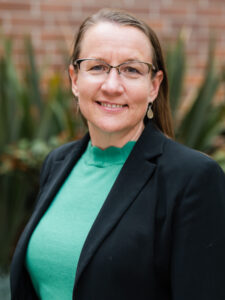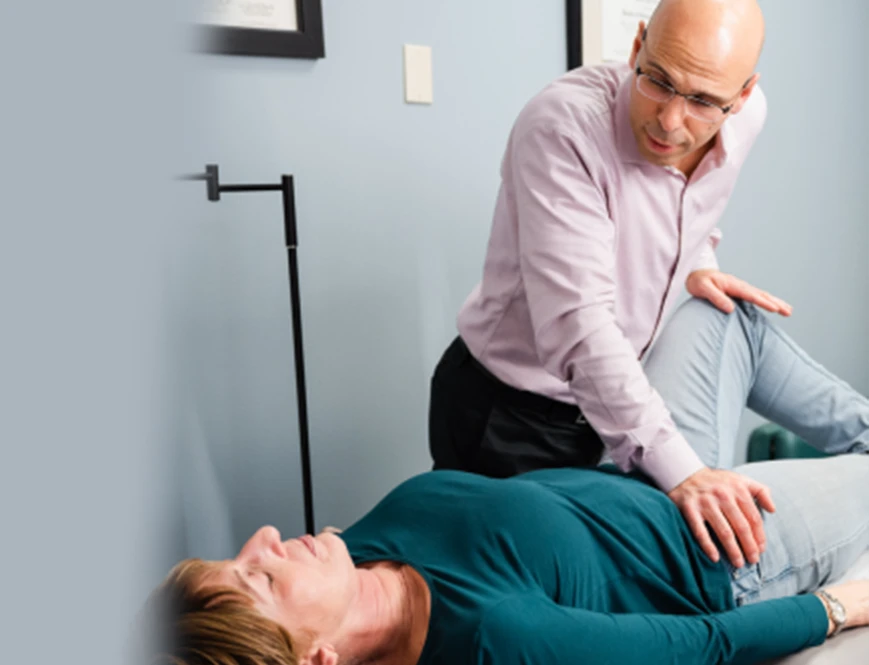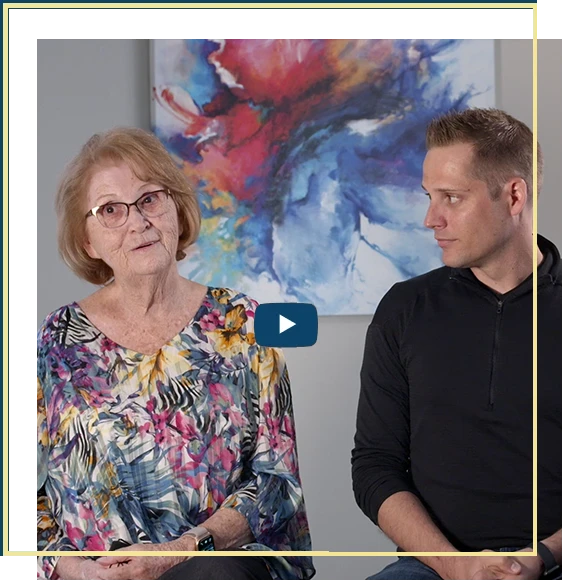Osteopathic medicine is a branch of healthcare that focuses on a holistic approach to treating patients. It emphasizes the interconnection between the body’s structure and function and the body’s ability to heal itself. Osteopathic physicians, or DOs, receive comprehensive medical training and are licensed to practice medicine and surgery. They use various techniques, including manual manipulation of the musculoskeletal system, to diagnose and treat a wide range of conditions.
When treating complex chronic illnesses, osteopathic medicine takes a whole-person, patient-centered approach. DOs consider the physical, emotional, and social factors that may contribute to a patient’s condition. They work closely with patients to develop individualized treatment plans that address the underlying causes of the illness rather than just managing symptoms.
How do Osteopathic Doctor Practice Medicine?
Osteopathic physicians may use a combination of traditional medical interventions, such as medications and surgeries, along with osteopathic manipulative treatment (OMT) to help alleviate pain, improve mobility, and enhance the body’s natural healing abilities. OMT involves hands-on techniques, such as gentle pressure, stretching, and resistance, to restore balance and function to the musculoskeletal system.
- Osteopathic physicians (DOs) are trained to provide a holistic approach to health that focuses on the body’s ability to heal itself.
- Osteopathic physicians treat the whole person, not just the symptoms of a disease. They use the latest advances in medical technology and focus on prevention and finding the underlying cause of illness.
- They are tuned into how a patient’s lifestyle and environment can impact their well-being and strive to help their patients be truly healthy in mind, body, and spirit — not just free of symptoms.
The practice of OMT is unique to DOs. Osteopathic doctors at Restoration Healthcare use various stretching, pressure, and resistance techniques. This hands-on approach is a more “back to the basics” approach to discovery and healing solutions. While OMT is often used to treat muscle pain, it can also help patients with various other health-related issues within a complex chronic illness.
By applying gentle pressure, stretching, and manipulation to the muscles, joints, and other tissues, osteopathic physicians aim to restore balance and alignment in the body. This can help to alleviate pain, reduce inflammation, improve circulation, and enhance the body’s natural healing processes. Osteopathic manipulation is often used with other medical treatments and therapies to provide comprehensive care for patients with complex chronic illnesses. A DO’s focus on the connection between the musculoskeletal system, healing pathways, and overall whole-person health can help patients achieve optimal wellness and improve their quality of life.
Osteopathic and Integrative Medicine
Osteopathic medicine is closely aligned with integrative medicine, one of the care models at Restoration Healthcare. Both approaches emphasize a holistic view of the patient, taking into account not just their physical symptoms but also their mental, emotional, and spiritual well-being. Osteopathic physicians are trained to treat the whole person using hands-on techniques, medication, and lifestyle interventions. This aligns with the integrative medicine approach, which emphasizes the integration of conventional and complementary therapies to promote healing and overall wellness.
One key aspect of osteopathic medicine that aligns with integrative medicine is focusing on the body’s inherent ability to heal itself. Osteopathic physicians believe in the body’s self-regulating and self-healing mechanisms and aim to support and enhance these natural processes. This aligns with the integrative medicine approach, which recognizes the body’s innate healing abilities and seeks to promote them through a combination of evidence-based therapies.
Restoring Innate Healing
Innate healing refers to the body’s natural ability to heal itself, a fundamental aspect of human physiology, and is present in all living organisms. The innate healing process is governed by various mechanisms, including the immune system, the nervous system, and the body’s ability to repair and regenerate damaged tissues. It involves the immune system’s response to pathogens, the nervous system’s regulation of inflammation and pain, and the body’s ability to repair and regenerate damaged tissues. The body’s self-healing capacity is essential for maintaining overall health and well-being.
Chronic illness can significantly interfere with innate healing processes. The body’s immune system, which plays a crucial role in healing, can be compromised in individuals with chronic illnesses. This can lead to a weakened immune response, making it more difficult for the body to fight infections and function normally.
Additionally, chronic inflammation, often present in individuals with chronic illnesses, can further hinder healing. Inflammation can delay tissue repair and regeneration, prolonging recovery time. Chronic disease’s constant physical and emotional stress can negatively impact the body’s healing ability. Stress hormones can suppress immune function and impair the body’s natural healing mechanisms.
Chronic illness limits the body’s regenerative capacity, so it cannot restore its structure and function and allow for complete healing, which poses significant challenges to the body’s innate healing abilities. Integrative medicine and osteopathic medicine use a multimodality approach to treating complex chronic illnesses to help restore the body’s innate healing ability to proliferate new cell generation, release neurotransmitters that modulate inflammatory responses, alleviate pain, and neutralize threats to initiate the healing process.
Patient Empowerment in Osteopathic and Integrative Medicine
Another aspect of osteopathic medicine that aligns with integrative medicine is the emphasis on preventive care and patient education. Osteopathic physicians strive to empower their patients to take an active role in their health and well-being. They educate patients about healthy lifestyle choices, stress management techniques, and other self-care strategies. This aligns with the integrative medicine approach, which emphasizes patient education and encourages individuals to make informed decisions about their health.
Restoration Healthcare’s Approach to Healing
All of the physicians at Restoration Healthcare share a holistic view of patient care, focus on the body’s innate healing abilities, and promote preventive care and patient education. Doctors and staff at Restoration Healthcare work in partnership with our patients and take the time to listen to their concerns. Patients share their extensive medical history, which is integrated into diagnostic and laboratory testing to develop a personalized treatment plan that empowers our patients to reach the healthiest life possible.
Our approach to integrative care for complex chronic illness combines the best research and practices, including osteopathic medicine, chiropractic, acupuncture, nutrition, dietary supplements and botanicals, IV therapy, and lifestyle modification. The use of multiple disciplines to treat our patients with difficult-to-treat, chronic-health conditions is a unique aspect of our care and our patient’s experiences with healing. Contact us or call us at (949) 535-2322.
Dr. Sunny Raleigh, Restoration Healthcare’s Medical Director and Osteopathic Physician
 Sunny Raleigh, DO, is a highly skilled and dedicated medical professional. With a Doctor of Osteopathic Medicine degree, Dr. Raleigh has received extensive training in both traditional medicine and osteopathic manipulative treatment. This unique combination of knowledge allows Sunny to provide comprehensive and holistic patient care.
Sunny Raleigh, DO, is a highly skilled and dedicated medical professional. With a Doctor of Osteopathic Medicine degree, Dr. Raleigh has received extensive training in both traditional medicine and osteopathic manipulative treatment. This unique combination of knowledge allows Sunny to provide comprehensive and holistic patient care.
In addition to her medical expertise, Dr. Raleigh is known for her compassionate and patient-centered approach. She takes the time to listen to their patient’s concerns and develop personalized treatment plans. She believes in building strong doctor-patient relationships based on trust and open communication.
With a commitment to lifelong learning, Dr. Raleigh stays up-to-date with the latest advancements in medicine and treatments for Lyme disease, mold exposure, Ehlers-Danlos, and many other difficult-to-treat conditions. She continuously strives to improve her skills and expand her knowledge to provide the best possible care to their patients. Dr. Raleigh is a respected and valued medical community member, and we are proud to see how she is making a positive impact on the lives of those she serves. Read more on Dr. Raleigh here.





